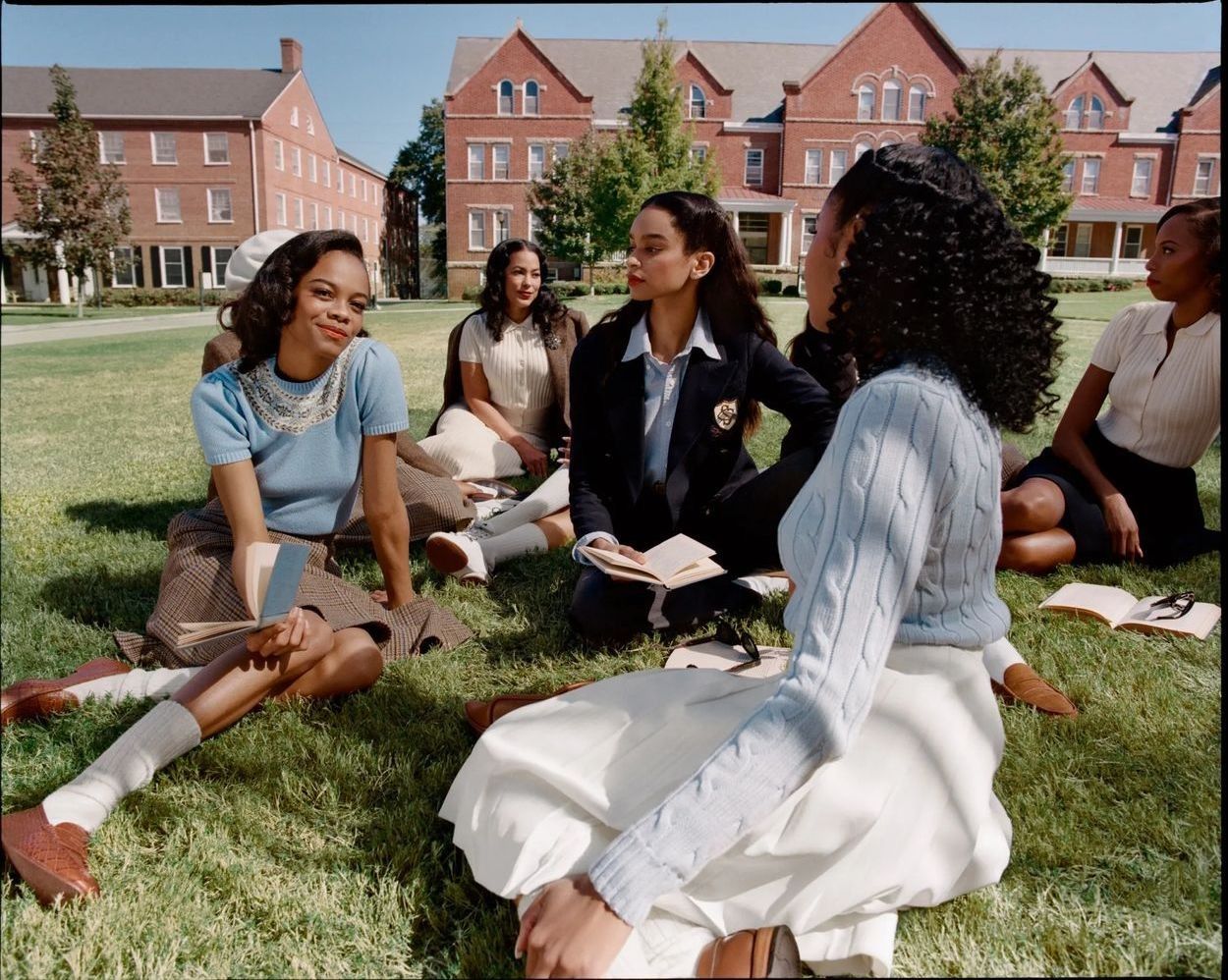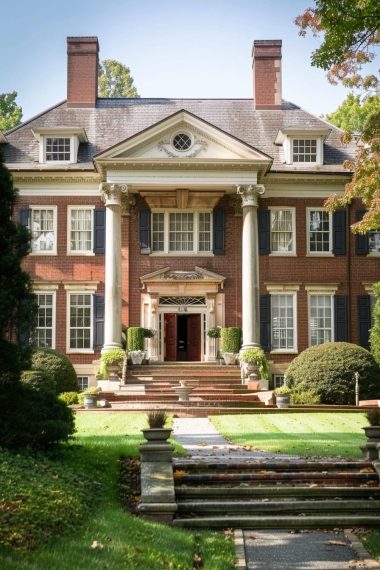These days, everyone seems to be interested in a world where refinement meets privilege, and exceptional opportunities pave the way to success. Today, we delve into the intriguing realm of the upper class, where the pursuit of excellence is not only a way of life but also a fundamental aspect of parenting.
I will unlock the enigmatic world of how high society nurtures their children, molding them into future leaders of society. From exclusive educational institutions to tailored curricula, from etiquette lessons to international experiences, we embark on a journey to understand the intricacies of upper-class education and uncover the secrets behind raising children destined for greatness.
It’s quite fascinating how the ultra wealthy use refined techniques and make distinctive choices that shape the lives of the elite offspring. Perhaps you can glean some insights that inspire you to create a brighter future for the next generation.
The Difference in Elite Education
The education of children within the elite and upper class circles is a captivating tapestry of privilege, tailored opportunities, and refined methodologies. With a relentless pursuit of excellence and a keen awareness of their privileged position, the elite utilize a multifaceted approach to ensure their children receive a well-rounded education that prepares them to navigate the complexities of high society and secure a prosperous future.
Wealthy families shape the educational journeys of their privileged offspring with practices and philosophies that set them apart from conventional educational systems. From exclusive schools and personalized curricula to extensive cultural experiences and social grooming, the path to success is meticulously crafted to cultivate the next generation of influential leaders.
The inner workings of elite education of the upper class aim nurture their children’s intellectual prowess, social grace, and unyielding ambition. They are taught to think for themselves and forge new pathways as opposed to following a beaten path and conforming to the mold. While there is certainly a level of respect for tradition, elite families want to encourage business innovation in their children, who will be tasked with carrying on the family fortune. Adaptability in a changing world is key.

Montessori School
While the primary educational choices made by the elite and upper class vary, Montessori schools hold a strong appeal for some families within these circles.
Montessori education is an alternative educational approach that emphasizes independence, self-directed learning, and individualized instruction. The Montessori philosophy aligns with the aspirations of the elite, who aim to give their children a unique educational experience tailored to their specific needs and potential.
One of the reasons why Montessori schools are favored by the elite is their emphasis on holistic development. Montessori classrooms are designed to create a nurturing environment that fosters intellectual, social, emotional, and physical growth. The curriculum is often structured to accommodate the individual pace and interests of each child, allowing them to explore and develop their strengths while receiving personalized guidance from trained Montessori teachers.
Montessori education encourages critical thinking, problem-solving, and creativity, skills that are highly valued in the upper echelons of society. The focus on experiential learning, hands-on activities, and collaborative projects cultivates a love for knowledge and a sense of curiosity, preparing children to excel academically and adapt to the ever-changing demands of the world.
Preperatory School
Preparatory high schools, also known as prep schools, boarding schools, or independent schools, are renowned for their rigorous academic programs, prestigious reputations, and extensive college preparatory curricula. These schools are often associated with providing an exceptional education and creating a pathway to admission into prestigious universities.
The decision to send children to preparatory high schools is motivated by several factors. Firstly, these schools offer smaller class sizes, allowing for more personalized attention and fostering a conducive learning environment. This individualized approach to education is highly valued by the elite, who seek to provide their children with the best possible educational opportunities.
Preparatory high schools often have a strong focus on college admissions and provide comprehensive support in navigating the complex application process. The elite place great importance on securing admission into Ivy League institutions and other renowned universities, and prep schools are known for their track record in successfully guiding students through this competitive process.
Prep schools often offer a wide range of extracurricular activities, including sports, arts, and community service programs. These schools emphasize character development, leadership skills, and cultivating well-rounded people who can excel not only academically but also socially and personally.
The network and connections formed in preparatory high schools can be invaluable in the future. Attending a prestigious prep school can provide access to influential alumni networks, internships, mentorship opportunities, and a range of resources that can open doors for future career prospects and social connections within elite circles.
Famous Prep Schools
There are several famous preparatory high schools that have gained recognition for their academic excellence, distinguished alumni, and longstanding reputations. Here are a few examples:
Phillips Exeter Academy – Exeter, New Hampshire, USA
Founded in 1781, Phillips Exeter Academy is one of the most distinguished prep schools in the United States. Known for its rigorous academic curriculum, emphasis on critical thinking and discussion-based learning, and renowned faculty, Exeter has produced many notable alumni.
For instance, the school educated Mark Zuckerberg, the co-founder of Facebook, and novelist Dan Brown, author of the international bestseller “The Da Vinci Code”. The Academy also counts among its alumni former U.S. Secretary of State, John F. Kerry, and Franklin Pierce, the 14th President of the United States.
Phillips Academy – Andover, Massachusetts
Founded in 1778, Phillips Academy Andover is one of the oldest and most elite and prestigious prep schools in the United States. Notable alumni include former U.S. Presidents George H.W. Bush and George W. Bush, as well as journalist Anderson Cooper.
Choate Rosemary Hall – Wallingford, Connecticut
Established in 1890, Choate Rosemary Hall is renowned for its rigorous academic program and emphasis on student engagement.
Prominent alumni include the 35th President of the United States John F. Kennedy, actress Glenn Close, and former U.S. First Daughter Ivanka Trump.
Deerfield Academy – Deerfield, Massachusetts
Founded in 1797, Deerfield Academy is recognized for its challenging curriculum and a strong sense of community.
Former U.S. Secretary of State, John F. Kerry, completed his education at Deerfield. The Academy also boasts King Abdullah II of Jordan as one of its most prominent alumni. In the business world, notable alumni include Howard Dean, former Governor of Vermont and former Chair of the Democratic National Committee, and Roelof Botha, a prominent venture capitalist. The entertainment industry also has representation with Matthew Fox, a well-known actor, best known for his roles in “Lost” and “Party of Five.”
Institut Le Rosey – Rolle, Switzerland
Institut Le Rosey, often referred to as Le Rosey or simply Rosey, is a prestigious private boarding school in the French-speaking region of Switzerland. It was founded in 1880 and is known for its rigorous academic curriculum, diverse student body, and its campus’ split between two stunning locations in Switzerland: a chateau on Lake Geneva for the spring/autumn terms and chalets in Gstaad for the winter term.
Offering both the International Baccalaureate and French baccalaureate, it’s known for educating many royal family members, entrepreneurs, and famous personalities. Le Rosey is one of the most expensive boarding schools in the world.
Harrow School – London, England
Harrow School, established in 1572, is one of the oldest and most prestigious schools in the United Kingdom. Known for its academic excellence and distinctive uniform, Harrow has educated notable figures such as Sir Winston Churchill, Robert Peel, Jawaharlal Nehru, and King Hussein of Jordan. In the arts, it produced actors such as Benedict Cumberbatch, known for his roles in “Sherlock” and “Doctor Strange,” and singer-songwriter James Blunt.
The Lawrenceville School – Lawrenceville, New Jersey
Founded in 1810, The Lawrenceville School is known for its commitment to intellectual inquiry and character development.
The Hotchkiss School – Lakeville, Connecticut
Founded in 1891, The Hotchkiss School is widely recognized for its rigorous academics, strong arts programs, and competitive athletics.
St. Paul’s School – Concord, New Hampshire
St. Paul’s School, founded in 1856, is known for its rigorous academics, strong sense of community, and commitment to public service.
Finishing School
Upper class education doesn’t stop with academics. The elite send their children to finishing school to learn how to behave in society.
What is finishing school? Finishing school refers to a specialized institution or program that offers instruction and training in various social and cultural skills, etiquette, and personal grooming. Historically, finishing schools were primarily aimed at young women from affluent backgrounds, with the goal of preparing them for the demands of high society and ensuring they possessed the refined manners and social graces expected of the elite.
The purpose of finishing schools has evolved over time, but the core objective remains the same: to equip individuals with the necessary skills and knowledge to navigate social and professional situations with poise, confidence, and grace. Some key benefits of attending a finishing school include:
Finishing schools place great emphasis on teaching proper etiquette and social protocols. Students learn how to interact with others, practice good manners, and navigate various social settings, including formal events, dining occasions, and professional environments.
Finishing schools often provide instruction on personal grooming, appearance, and style. This includes guidance on wardrobe selection, makeup application, posture, and body language, with the aim of enhancing one’s personal presence and projecting an image of sophistication.
Effective communication is a vital skill in both personal and professional spheres. Finishing schools offer training in effective communication techniques, including public speaking, active listening, engaging in meaningful conversations, and expressing oneself eloquently.
Many finishing schools incorporate cultural and artistic education, exposing students to the arts, literature, music, and other cultural pursuits. This cultivates a sense of appreciation for fine arts, enhances cultural literacy, and fosters a well-rounded personality.
Attending a finishing school provides opportunities to network and build social connections with individuals from similar backgrounds. The relationships formed during this time can be valuable for personal and professional growth, as they often span various influential circles.
The immersive nature of finishing school programs can instill a sense of self-confidence, self-awareness, and assertiveness. Students gain a heightened sense of poise and learn to navigate social situations with ease, boosting their overall self-esteem.
European Finishing Schools
Europe has a rich history of prestigious finishing schools that have catered to individuals seeking refinement and social polish. Here are a few examples of famous finishing schools in Europe:
Institut Villa Pierrefeu (IVP) – Switzerland
Located in Glion-sur-Montreux, Switzerland, Institut Villa Pierrefeu is one of the oldest and most renowned finishing schools in Europe. It offers comprehensive courses on etiquette, social skills, and cultural refinement. The school is known for its emphasis on traditional values, refinement, and preparing individuals for high-society engagements.
Les Charmettes – France
Situated in Paris, France, Les Charmettes is a renowned finishing school offering programs focused on elegance, etiquette, and personal development. It provides instruction on social graces, personal style, and cultural refinement to individuals seeking to enhance their social standing and professional presence.
Institut de la Maison (IME) – France
Located in Paris, Institut de la Maison is a prestigious finishing school that offers programs focusing on culinary arts, table manners, and household management. It aims to train in the art of gracious entertaining, refined dining, and managing a well-run household.
These are just a few finishing schools in Europe that cater to those seeking to enhance their social skills, cultural refinement, and personal presentation. Each institution has its own unique approach and areas of specialization, but they all share a common goal of imparting the knowledge and skills necessary to thrive in high-society circles.
Ivy League Degrees
When it comes to higher education, there’s no finer sign of success than a diploma from an ivy league institution.
The Ivy League is a group of eight prestigious private universities located in the northeastern United States. The Ivy League schools, known for their academic excellence and selective admissions, are:
- Harvard University (Cambridge, Massachusetts)
- Yale University (New Haven, Connecticut)
- Princeton University (Princeton, New Jersey)
- Columbia University (New York City, New York)
- University of Pennsylvania (Philadelphia, Pennsylvania)
- Brown University (Providence, Rhode Island)
- Dartmouth College (Hanover, New Hampshire)
- Cornell University (Ithaca, New York)
The elite place a high value on Ivy League degrees for several reasons, rooted in the reputation, resources, and opportunities associated with these prestigious institutions. Ivy League universities are renowned for their academic rigor, distinguished faculty, and rigorous admission standards. The elite value the intellectual rigor and the challenge that these institutions offer, believing that an Ivy League education provides a strong foundation of knowledge and critical thinking skills.
Ivy League schools have gained international recognition and are associated with excellence in education. The brand value of an Ivy League degree carries weight and is often seen as a mark of distinction and academic achievement. The elite value the reputation and prestige that come with attending and graduating from these esteemed institutions.
Ivy League universities boast extensive networks of accomplished alumni, which can provide valuable connections and opportunities in various fields. The elite recognize the potential benefits of networking with influential individuals who share a common educational background, facilitating access to elite social circles, job opportunities, and professional advancement.
Graduating from an Ivy League school can open doors to lucrative career prospects. Many elite employers and top-tier companies actively recruit graduates from these institutions, considering them to be highly qualified and capable candidates. The elite value the potential for enhanced career prospects and the ability to secure prestigious positions in their chosen fields.
Attending an Ivy League university is seen as a symbol of social status and achievement within elite circles. It can confer a sense of belonging and validation, reinforcing one’s position in the social hierarchy. The elite value the social capital associated with an Ivy League education, as it aligns with their aspirations for themselves and their families.
Subscribe



